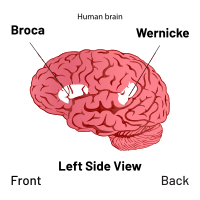
Photo from wikipedia
Psychophysiological research methods allow important insights into normative and pathological functioning of the human organism. This position paper briefly reviews existing studies, investigating the psychophysiological concomitants of personality pathology, with… Click to show full abstract
Psychophysiological research methods allow important insights into normative and pathological functioning of the human organism. This position paper briefly reviews existing studies, investigating the psychophysiological concomitants of personality pathology, with an emphasis on developmental aspects. Focussing on measures, indexing autonomic nervous system (ANS) activity at rest, and its reactivity to experimental challenge, the narrative synthesis of the literature highlights current challenges in the field. Findings on the psychophysiological concomitants of personality pathology are mixed. Inconsistencies among studies arise from differences between disorders and heterogeneity within distinct diagnostic categories. The majority of studies addressed borderline personality disorder, illustrating robust alterations in ANS function linked to severe experiences of early maltreatment and trauma, and associated symptoms of dissociation. However, important life-style and secondary health-related factors (i.e. physical activity, smoking) influencing ANS function are frequently neglected. Adapting a dimensional approach to personality pathology and longitudinal research designs seem promising to advance the filed in the years to come.
Journal Title: Current opinion in psychology
Year Published: 2020
Link to full text (if available)
Share on Social Media: Sign Up to like & get
recommendations!